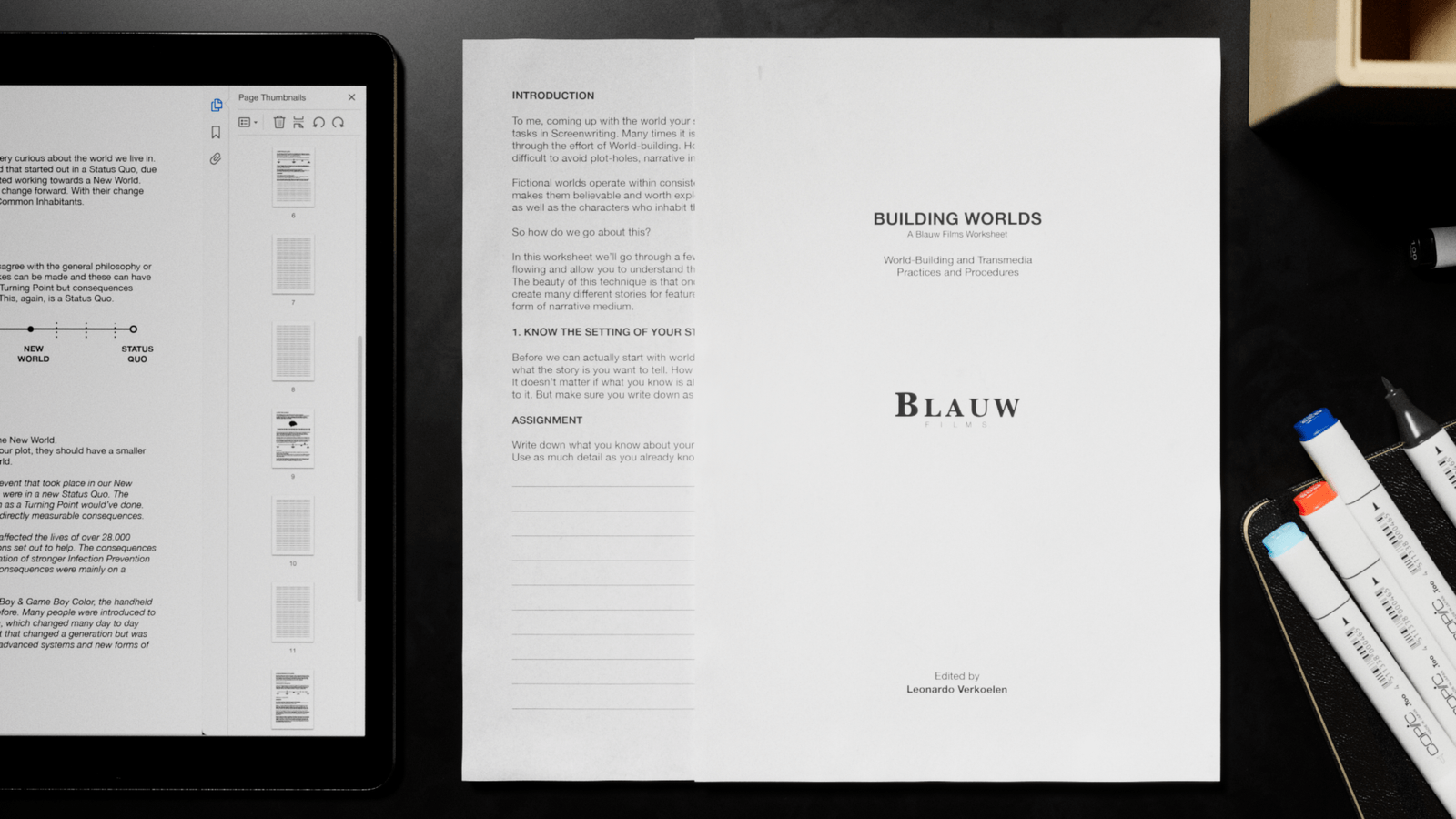What is Open-source Filmmaking?
How open projects benefit the creative industry
Blauw Films
Open-source Wikipedia definition:
Open source is source code that is made freely available for possible modification and redistribution. Products include permission to use the source code, design documents, or content of the product. The open source model is a decentralized software development model that encourages open collaboration.
The Open-source Movement
The open-source movement started to arise part and parcel with the rise of the internet, mainly in the software and pharmaceutical industries. Heightened accessibility and shareability of code (through the internet) called for clarification of copyright and domain rights. As stated in the definition above, open-source projects are supposed to be freely modified and redistributed.
Open-source licensed projects don’t put any restrictions on the commercial use of derivative works. This is an extremely important aspect to understand about the power of open-source development and the potential of open-source projects.
It is widely accepted that open-source projects can be great catalysts for innovation and growth. Large corporations often publish selected projects to open-source platforms, in order to attract specialists and fast-track innovation. If the bar can be raised collectively, all who participate will benefit from it.
Open-source Filmmaking
Even though the term “open-source filmmaking” might sound innovative, it has already been an integral part of film production for more than a decade. Studios such as Pixar and Disney have long had open-source projects available on their websites. An important open-source project from Pixar is Universal Scene Description (OPENUSD). For a technology-heavy company such as Pixar, open-source development has been an essential part of their innovations. Anyone can follow Pixar’s open-source developments on their Github.
However, there are many more open-source projects that the filmmaking process is built upon. Some you may have heard of. Others you may have interacted with on a regular basis, sometimes without even knowing about it!
Let’s name a few and try making a mental checklist of those you are familiar with:
- Open Shading Language
- OpenEXR
- OpenColorIO
- OpenCue
- OpenVDB
- DPEL: Digital Production Example Library
- MaterialX
- OpenFX
- OpenImageIO
- OpenTimelineIO
- ACES: Academy Color Encoding System
- Alembic
- Cryptomatte
- DCP-o-Matic
- Darktable
And there are so many more! :)

Open-source at Blauw Films
We see open-source as the single most important opportunity for filmmakers, and honestly all creators, to lower entry barriers and compete with closed-source studios.
In January 2024, we at Blauw Films made all of our resources freely available. This marked the beginning of a truly open-source approach for our studio. Over the years our tools have enjoyed various contributions from our community. In order to give contributions visibility, and connect contributors to one another, we have started to develop our Portal. Which will be an open contribution platform, similar to GitHub, with specialized tools for the creative industry.
But we don’t stop there.
Open-source and creative common ideologies are the root of our DNA. We have spent years developing a business model that merges the traditional film production business model with an open-source model. At Blauw Films, the source will always be freely available.
This means that we are dedicated to freely distribute our films upon release.
If you’re wondering how we plan to monetize our projects while giving everything away for Free, you might want to continue reading.
Free VS Open
It is a common misconception that open-source projects have no chance for profit or commercialisation.
The difference between open access to the source code and a free product, seems to be continuously confusing for people.
Important to understand about open-source development is the principle of “forking”. The term originates from the open-source platform Github, where projects can be forked by users. Forking separates new developments from the source and marks the start of a new avenue. The source project can be developed open-source, but forked projects can be developed into a new project entirely, adopting proprietary licenses of their own.
As stated earlier, open-source licenses are not compatible with all types of creative commons licenses. The ability to freely fork, derive and distribute projects that includes open code and build profitable businesses with it, is not only allowed, but also an integral part of open-source development.
Licensing
The Blauw Films business model includes a licensing model. This is an extremely common business model in the entertainment industry, and we interact with it every day. Blauw Films as IP holder, or Licensor, partners with licensees to create and distribute exploits of our IP.
Our open-source model acts as an audience catalyser. New audiences that first meet Blauw Films are free to interact with our IP without financial commitment. There is no entry barrier to come in and enjoy our stories.
Audiences that want to deepen their engagement with our stories, can do so through our range of products. It’s our task, as licensor, to bring the best products to our audiences. As we don’t have the capability to produce everything in-house (we are very busy developing our stories), we partner with licensees. That is one of many established revenue models that can be built upon your productions. And can be accelerated by the use of open-source developments.
Conclusion
The entertainment and arts industry is an ever evolving landscape. And it's a very exciting one at that. For the longest time the top 1% of productions have been run by closed-sourced studios while they were built on countless open-source technologies. But the tide is shifting.
We will be seeing more and more studios taking on a more open-source approach to their productions. All while only more and more creators and developers will benefit from all the open contributions. And we’re incredibly excited to be a part of that change! :)
If you would like to read about how our open-source techniques relate to self-sustainable filmmaking I'd recommend you give this article a read.

























































































.jpg)





.jpg)

.jpg)






.png)




0 Comments